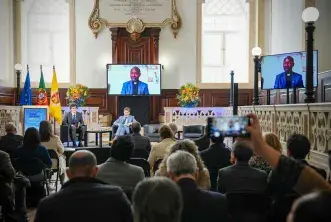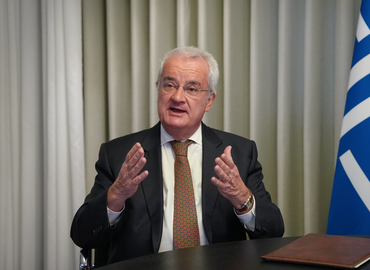World Leaders Unite for Peace, Sustainability, and Human Dignity at the KAICIID Global Dialogue Forum
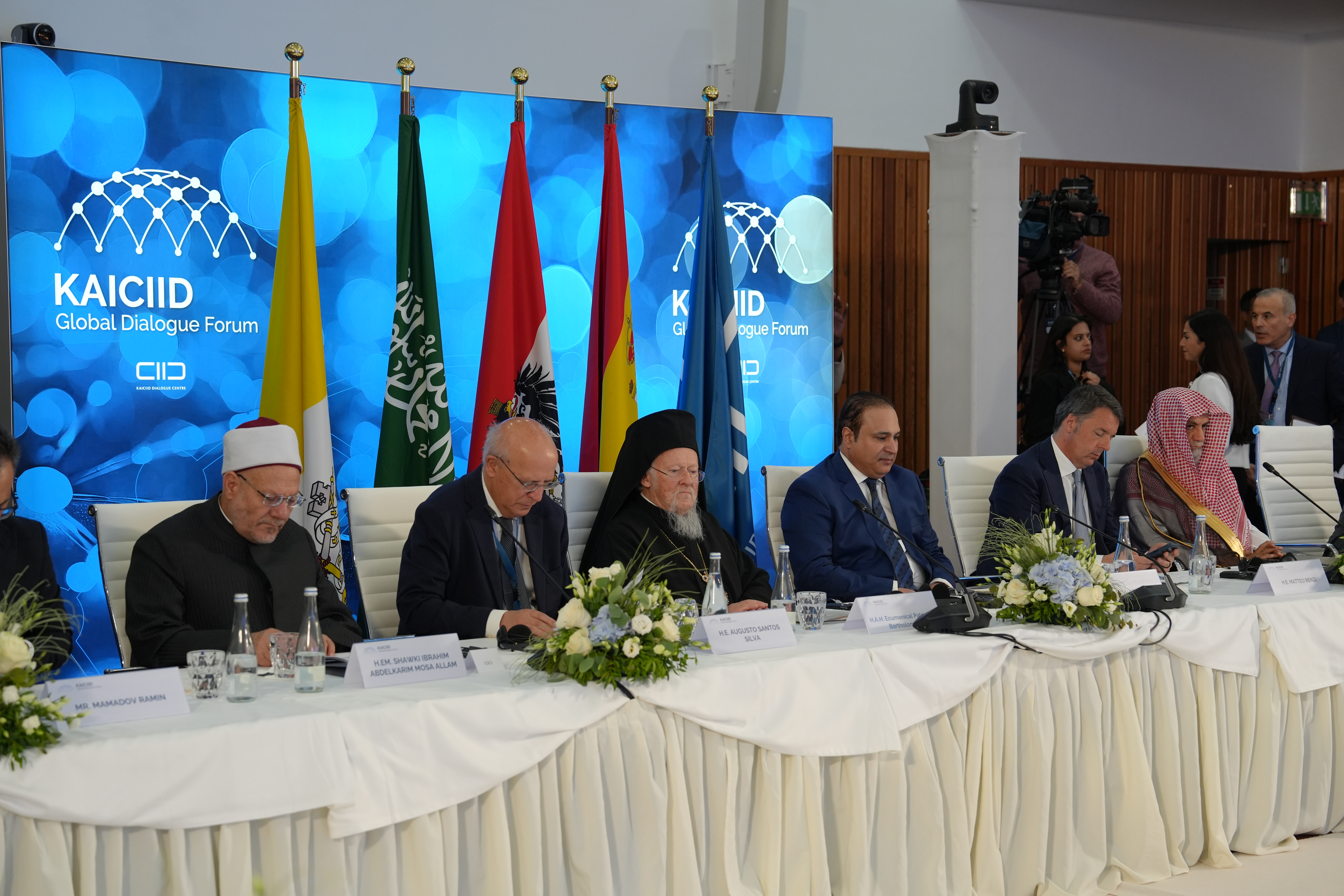
High-level religious leaders, current and former heads of state, and other dignitaries convened in Lisbon to address pressing global challenges, including the climate crisis, threats to social cohesion, and the rising number of violent conflicts worldwide. They emphasized the need for transformative dialogue to advance global peacebuilding and development efforts. These discussions occurred at the KAICIID Global Dialogue Forum (KGDF), hosted by the International Dialogue Centre - KAICIID from May 15-16 in Lisbon, Portugal.
The Urgent Need for Dialogue
In the opening plenary, H.E. Dr. Zuhair Alharthi, Secretary General of the International Dialogue Centre – KAICIID, emphasized the critical and urgent need for dialogue, especially given the numerous ongoing conflicts worldwide—from Ukraine to Gaza to Sudan. “The need for dialogue is paramount. We are in an era of escalating conflicts, deepening division, and growing distrust. Complex challenges require collective action,” he said.
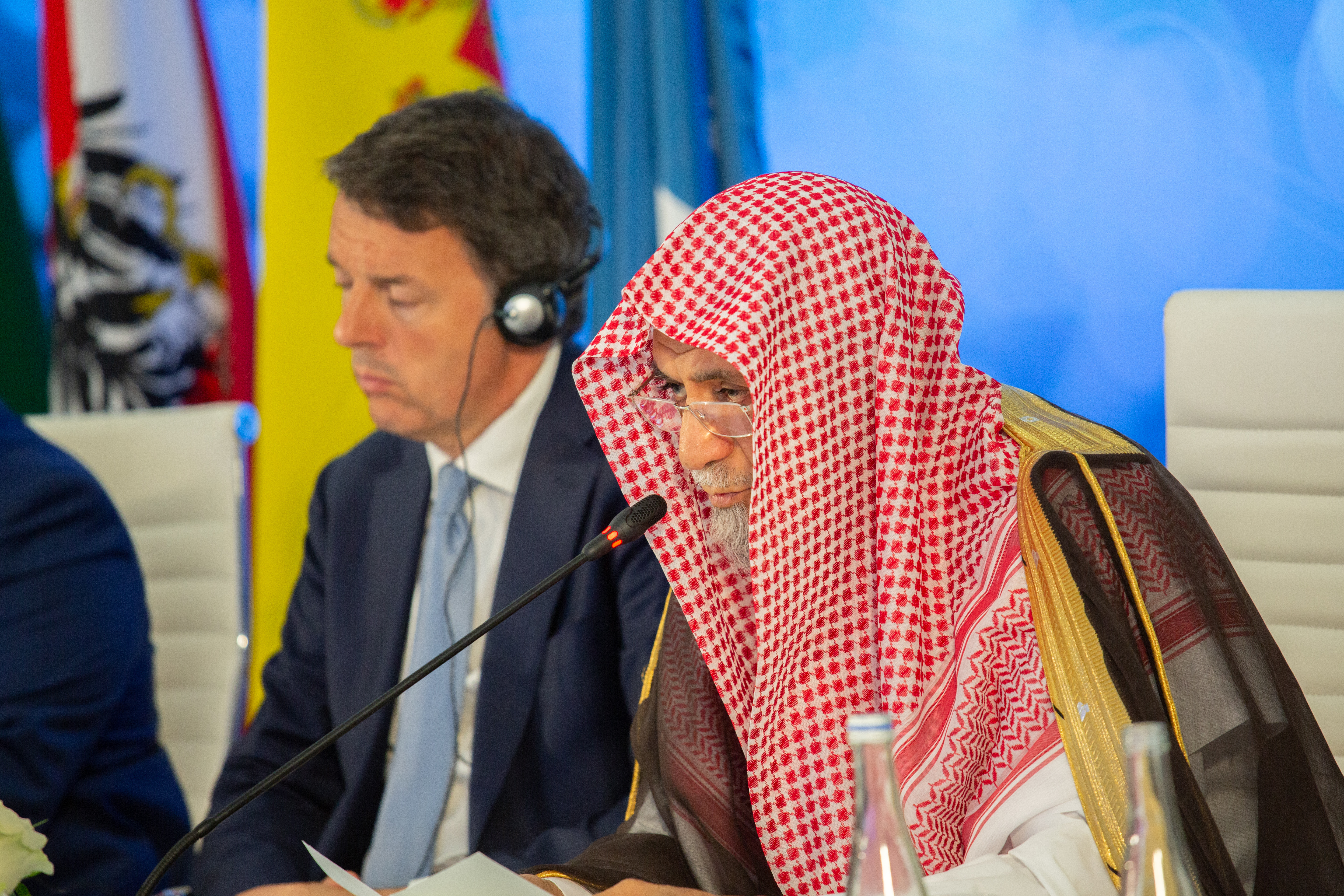
H.Em. Salih bin Abdullah al-Humaid, Imam of the Grand Mosque of Mecca, affirmed that dialogue is essential for building bridges of understanding and reinforcing the values of peace and inclusiveness. “Dialogue can build solid alliances and partnerships. It has become a cornerstone in achieving just and comprehensive peace and consolidating moral values and ethics across all societies and communities,” he added.
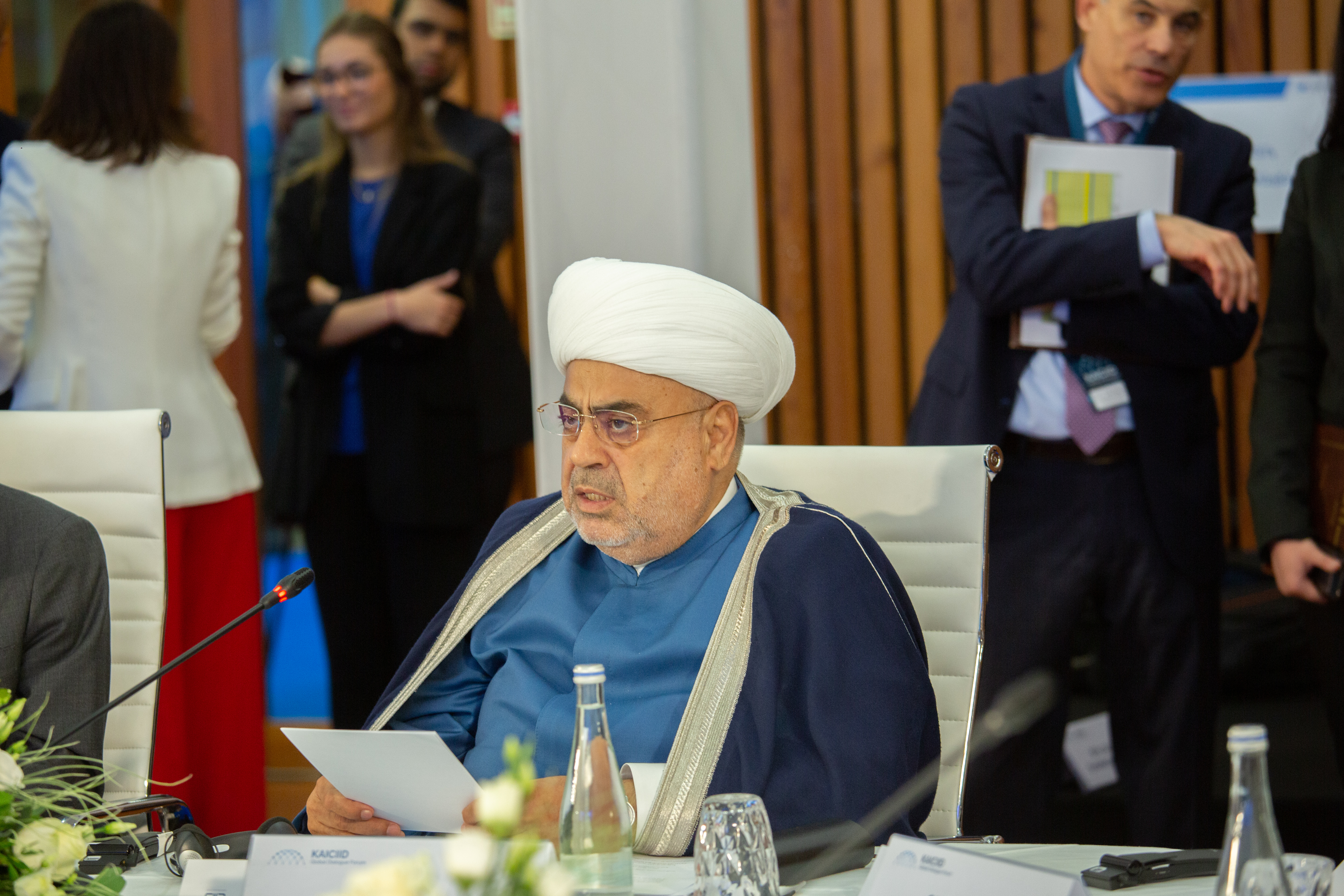
H.V. Prof. Dr. Allahshukur Pashazade, Sheikh Ul-Islam of the Caucasus, noted that increasing xenophobia and religious and ethnic intolerance hinder international stability and security. “The salvation of our rapidly polarized and fragmented world is possible through joining efforts for the sake of human interests and the creation of an environment of confidence,” he stated.
Addressing Rising Intolerance
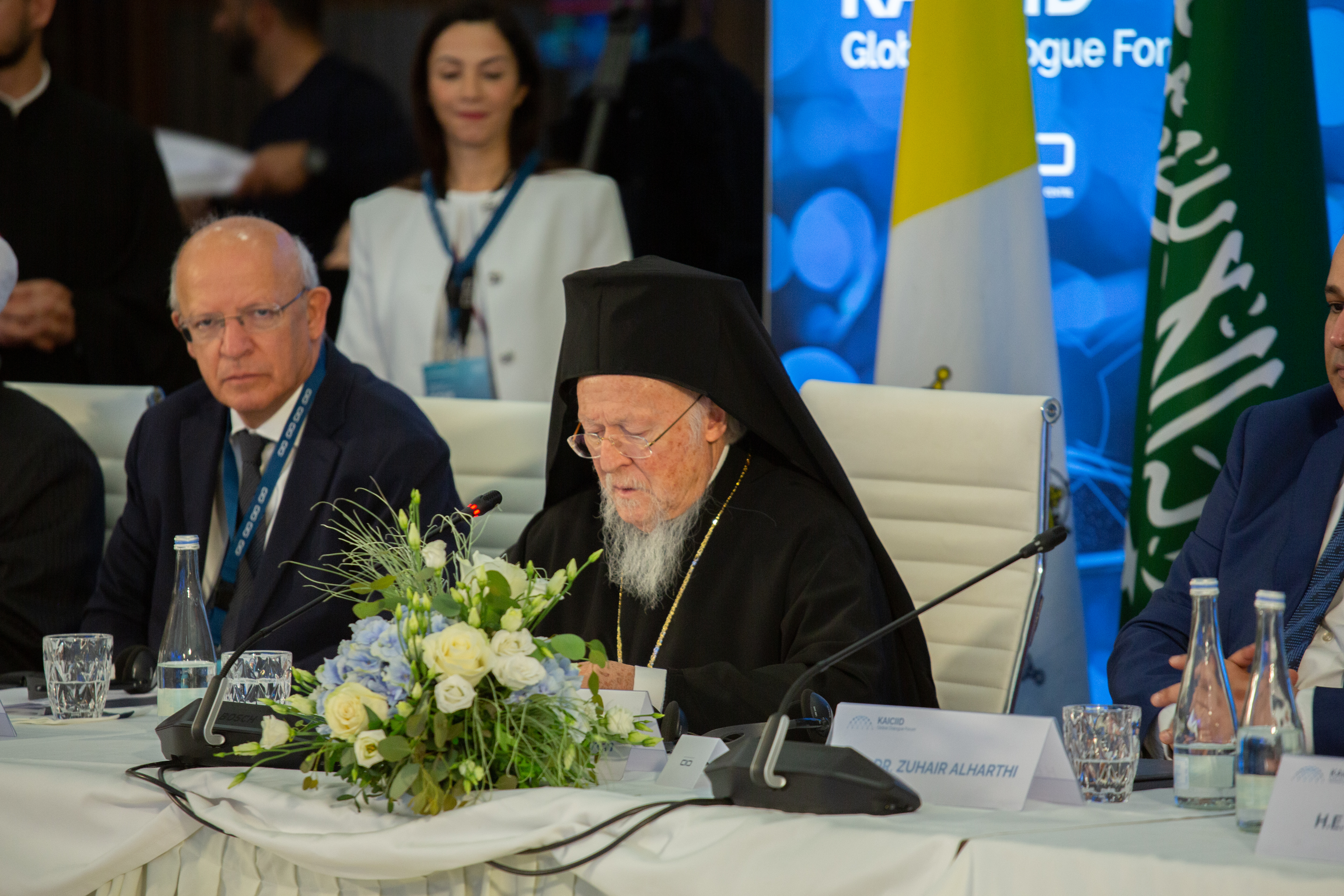
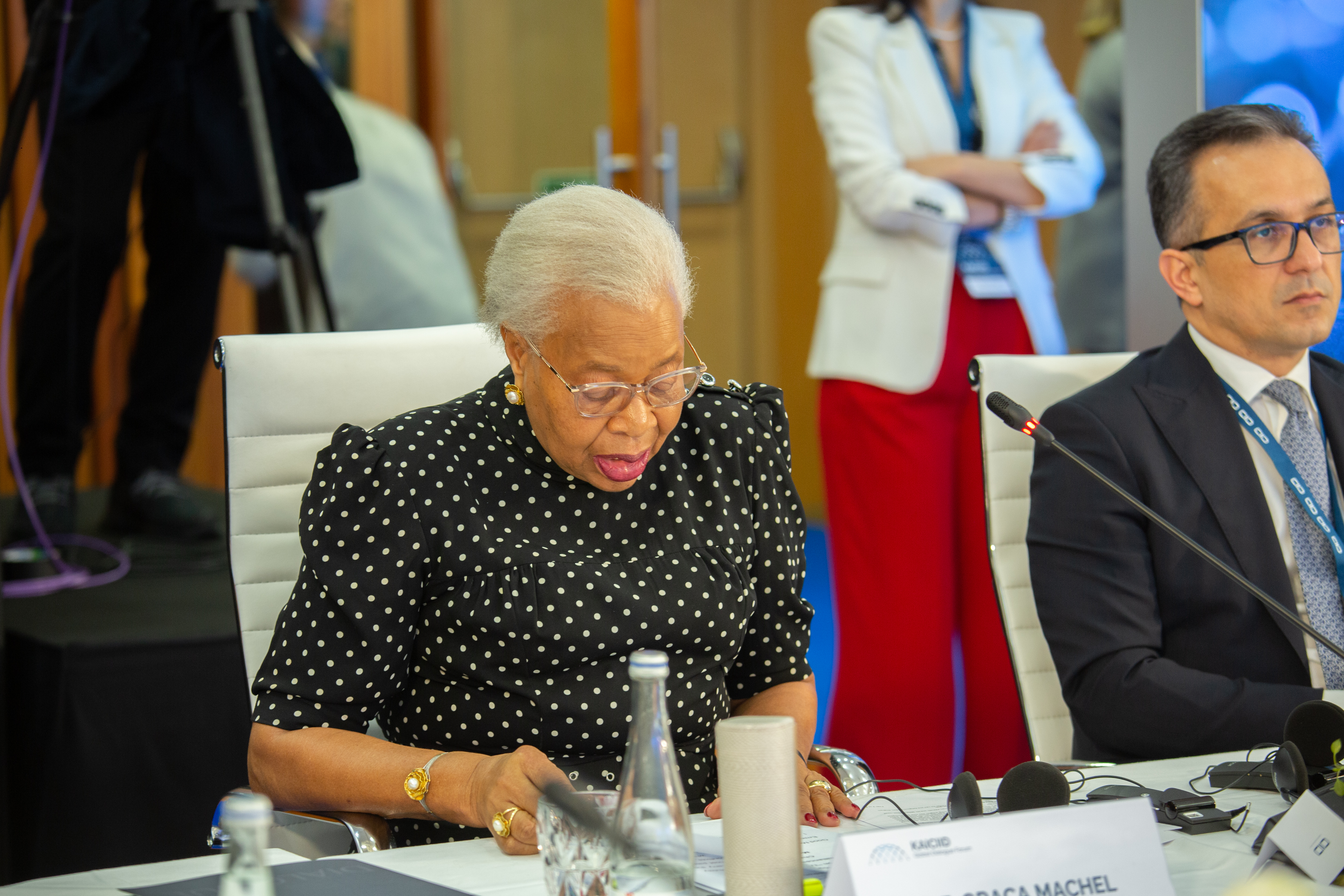
Several keynote speakers highlighted the escalation of violence in the Arab region and its resultant increase in anti-Semitic and Islamophobic incidents in Europe. Examples include attacks on religious sites such as the desecration of a Jewish cemetery in Vienna and an attempted arson attack on a mosque in the UK.
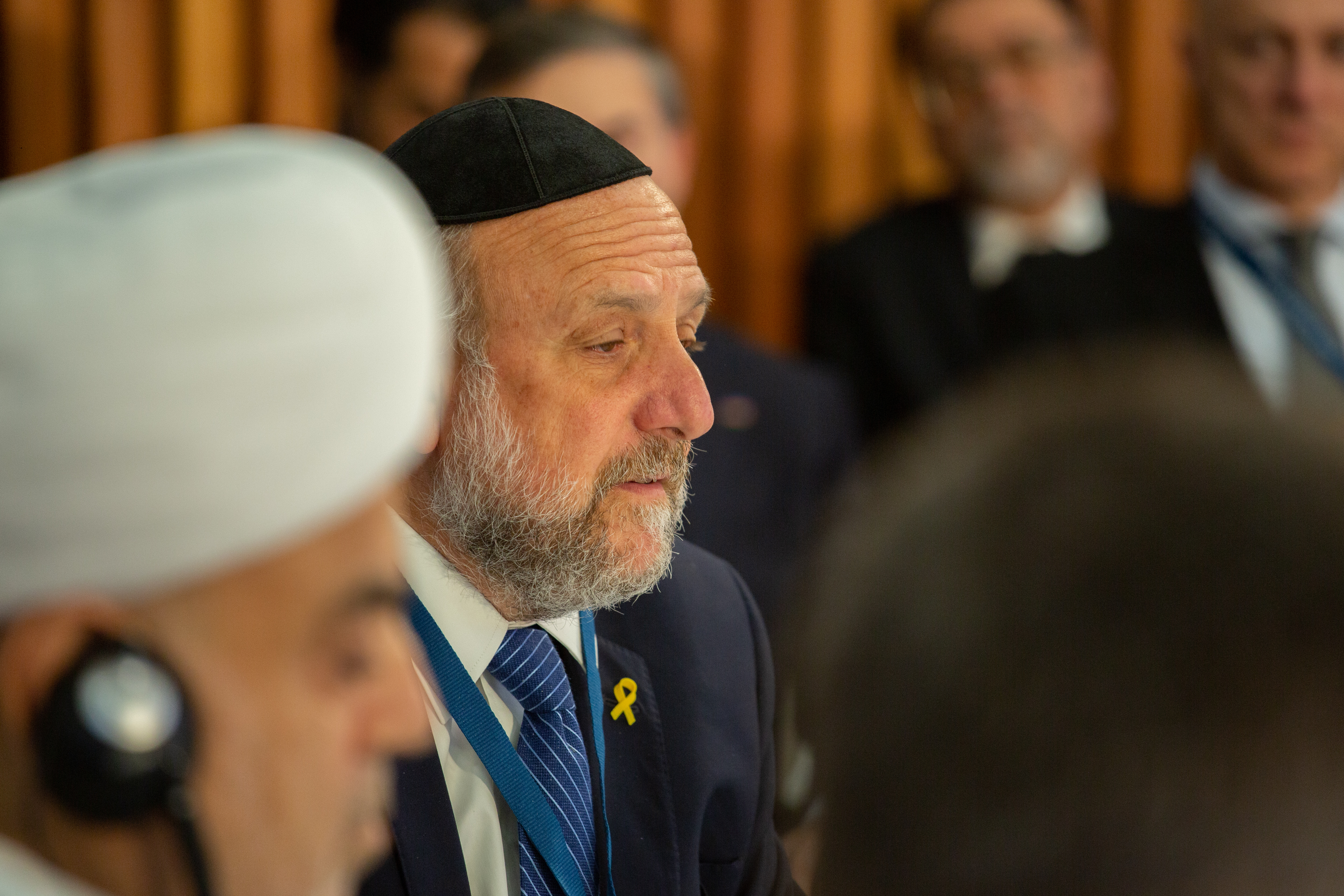
Chief Rabbi Michael Schudrich, Chief Rabbi of Poland and a Board Member of the KAICIID-supported Muslim Jewish Leadership Council (MJLC), recalled an incident in early May when a 16-year-old boy threw three Molotov cocktails at the wall of a synagogue in Poland. He noted that within hours of the attack, the Jewish community gathered with representatives from the Catholic Church, the Mufti of Poland, and officials from the Polish presidency, parliament, and local mayor’s office. “We spoke together about how there is no place for anti-Semitism or for anti-Islam. There is no place for hatred. It is imperative that we speak about those things that are wrong, whether it’s the burning of the Quran or a Molotov cocktail against a synagogue wall.”
Tackling the Global Climate Crisis
The KAICIID Global Dialogue Forum also featured interventions from current and former heads of state involved with the global climate agenda, including Matteo Renzi, former Prime Minister of Italy; François Hollande, former President of France; and Ilham Aliyev, current President of Azerbaijan, who will host the UN Climate Conference (COP29) in Baku later this year.
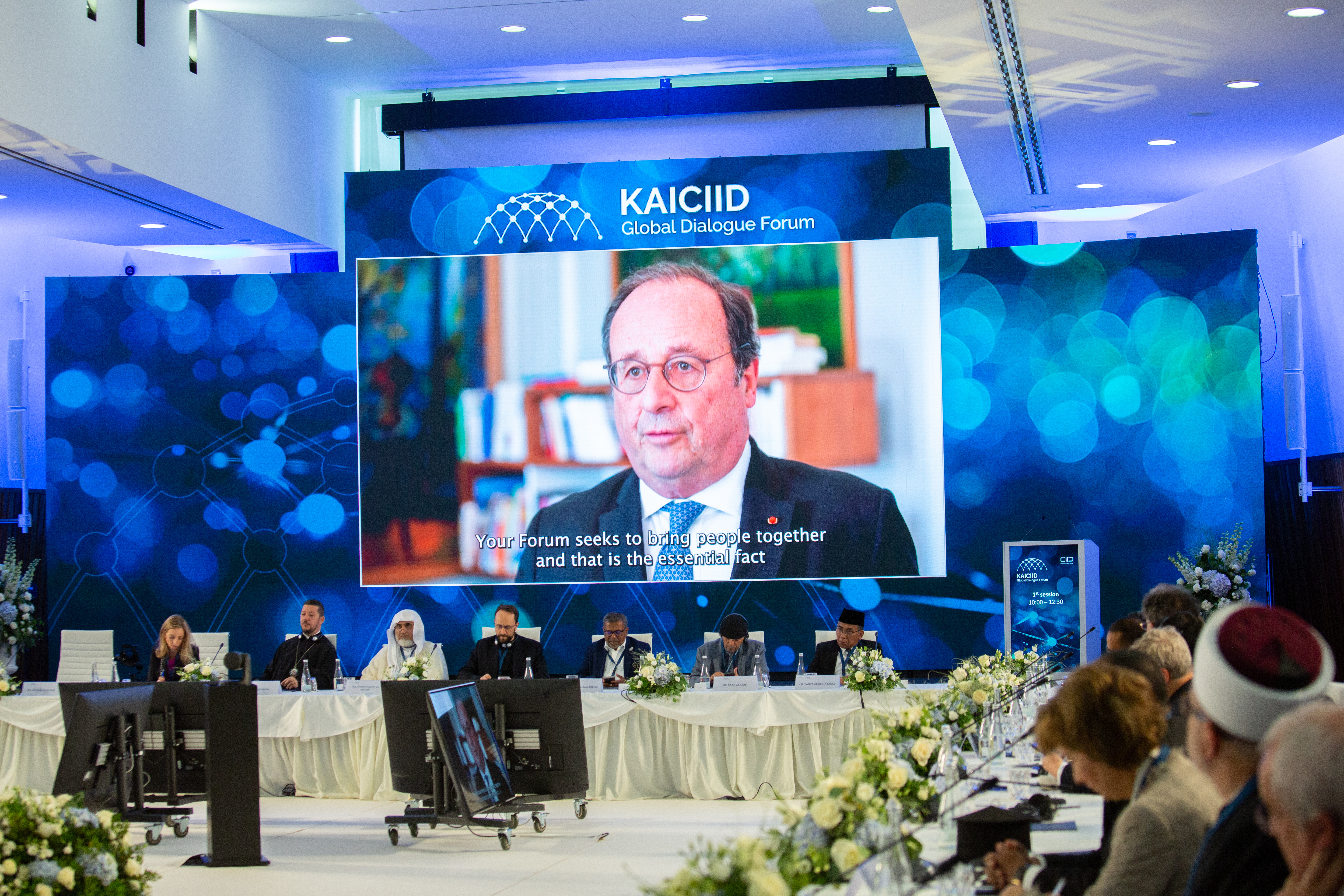
H.E. Francois Hollande, former President, Republic of France, pointed to the Paris Climate Agreement, adopted by 196 parties at the 2015 United Nations Climate Change Conference (COP21), as a recent example of international dialogue and cooperation. This legally binding treaty commits signatories to limit global warming to 1.5°C by reducing greenhouse gas emissions and showcases how global leaders can unite over a shared objective, setting aside differing national interests and external pressures. “During the negotiations, the organization of interreligious action ensured that spiritual leaders could participate in the adoption of this international text, which is even more crucial today,” Hollande added.
H.E. Ilham Aliyev, President of Azerbaijan, in a written message emphasized the critical partnership between policymakers and religious leaders in addressing climate change, which will be highlighted at COP29. This event will coincide with the Summit of World Religious Leaders, integrating interreligious dialogue and spiritual values with global climate policy. President Aliyev also discussed the broader implications of these discussions, highlighting how they address other global challenges, including geopolitical conflicts exacerbated by climate-related disasters. "There is a need for a fresh approach to both bilateral and multilateral relations in this context and to delineate the role of religion in global affairs," he stated.
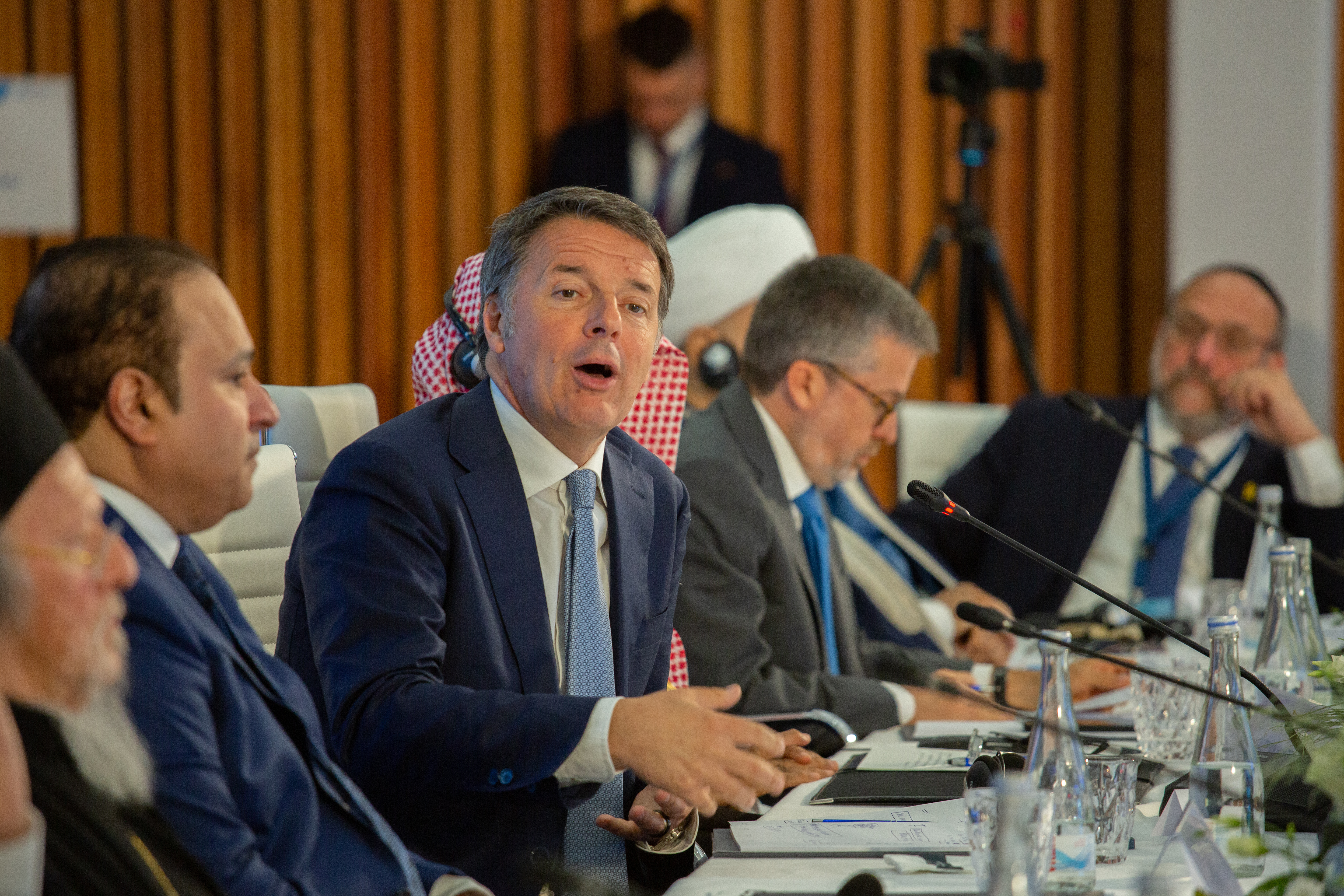
H.E. Matteo Renzi, former Prime Minister, Republic of Italy, reflected on the vital role of dialogue in addressing global issues like environmental sustainability and nuclear threats. He emphasized that dialogue is not merely a means of compromise, but the essence of humanity, crucial for effective political and geopolitical engagement. “This is a dramatic time in the world. We need dialogue, not because it is a compromise or simple, but because it is the soul of humanity. Without it, it’s impossible to play a role in politics or geopolitics,” Renzi stated.
Transformational Dialogue Depends on Human Dignity
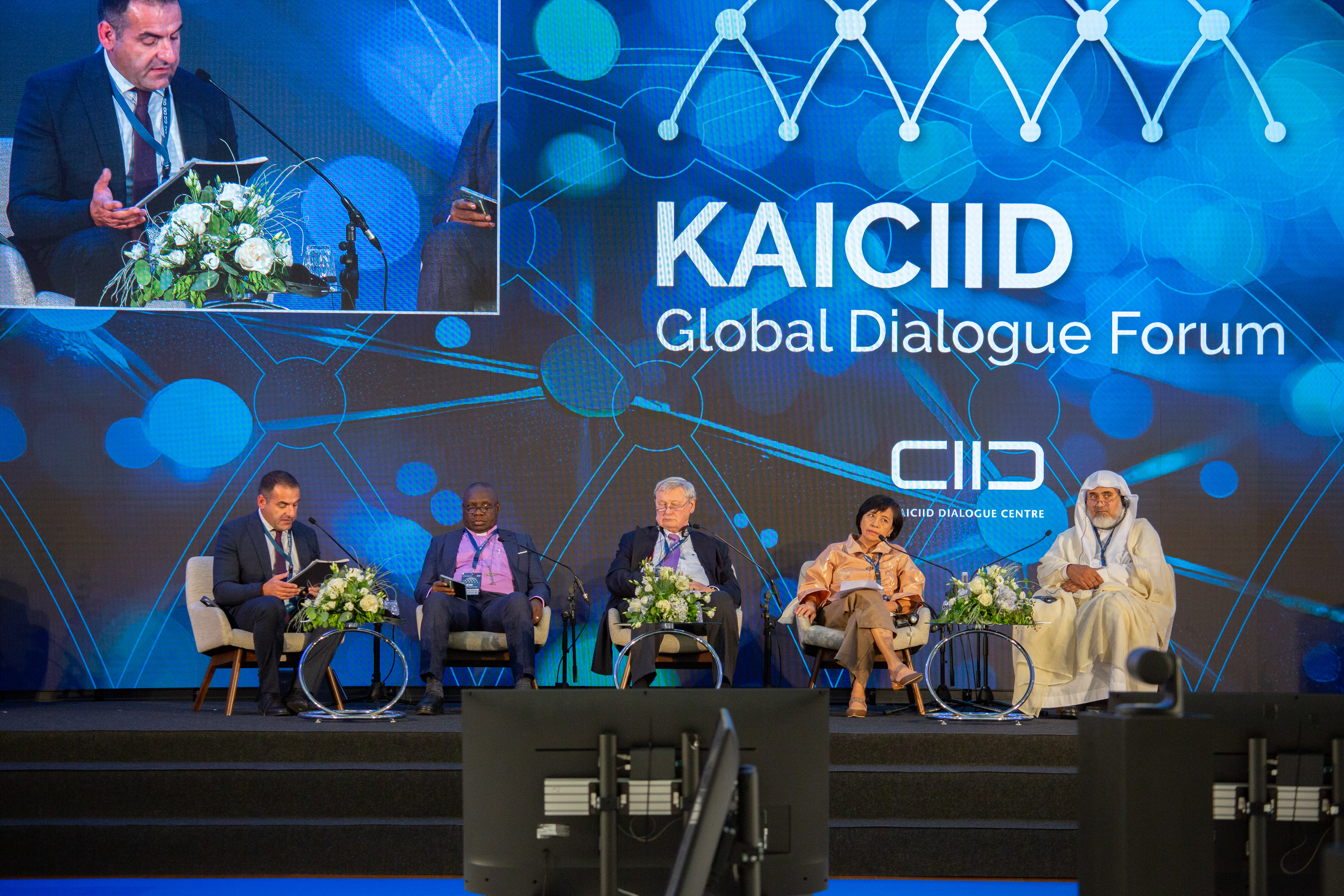
On the afternoon of the forum's first day, participants attended a discussion emphasizing the profound importance of recognizing and upholding human dignity in fostering effective dialogue and cooperation across diverse cultural and religious landscapes.
Ms. Bani Dugal, the Principal Representative of the Bahá’í International Community to the United Nations, emphasized the foundational aspects of human dignity, stating that it is "a recognition of the worth and value of every human being. It involves a sense of moral obligation to treat others with respect."
Dr. Brett G. Scharffs, Director of the International Center for Law and Religious Studies at Brigham Young University, explored the transformative power of dialogue and its ability to foster genuine relationships based on trust and truth. He referenced the Universal Declaration of Human Rights (UDHR) as evidence of the centrality of human dignity in global consensus-building. He mentioned that during fraught discussions over an early 400-page draft, tensions were eased when a delegate suggested beginning and ending by reflecting on human dignity.
"If you look at the first sentence of the preamble of the UDHR, you’ll find human dignity. If you look at the first sentence of Article 1, you’ll find human dignity," he said
Dr. Scharffs argued that in today's polarized society, focusing on human dignity could help frame difficult conversations about human rights and religious freedom and untangle the complex issues of identity politics. "It’s not a magic pill, but it creates a framework for discussion which helps orient us towards creative and generative problem-solving."
The Intersection of Environmental Stewardship and Spiritual Values
Participants were divided into thematic discussion groups focusing on the KGDF’s three key topics: Peacebuilding and Conflict Transformation, Building Inclusive Cities, and Sacred Ecology. These discussions explored how spiritual values and religious practices can contribute to global efforts to safeguard the planet.
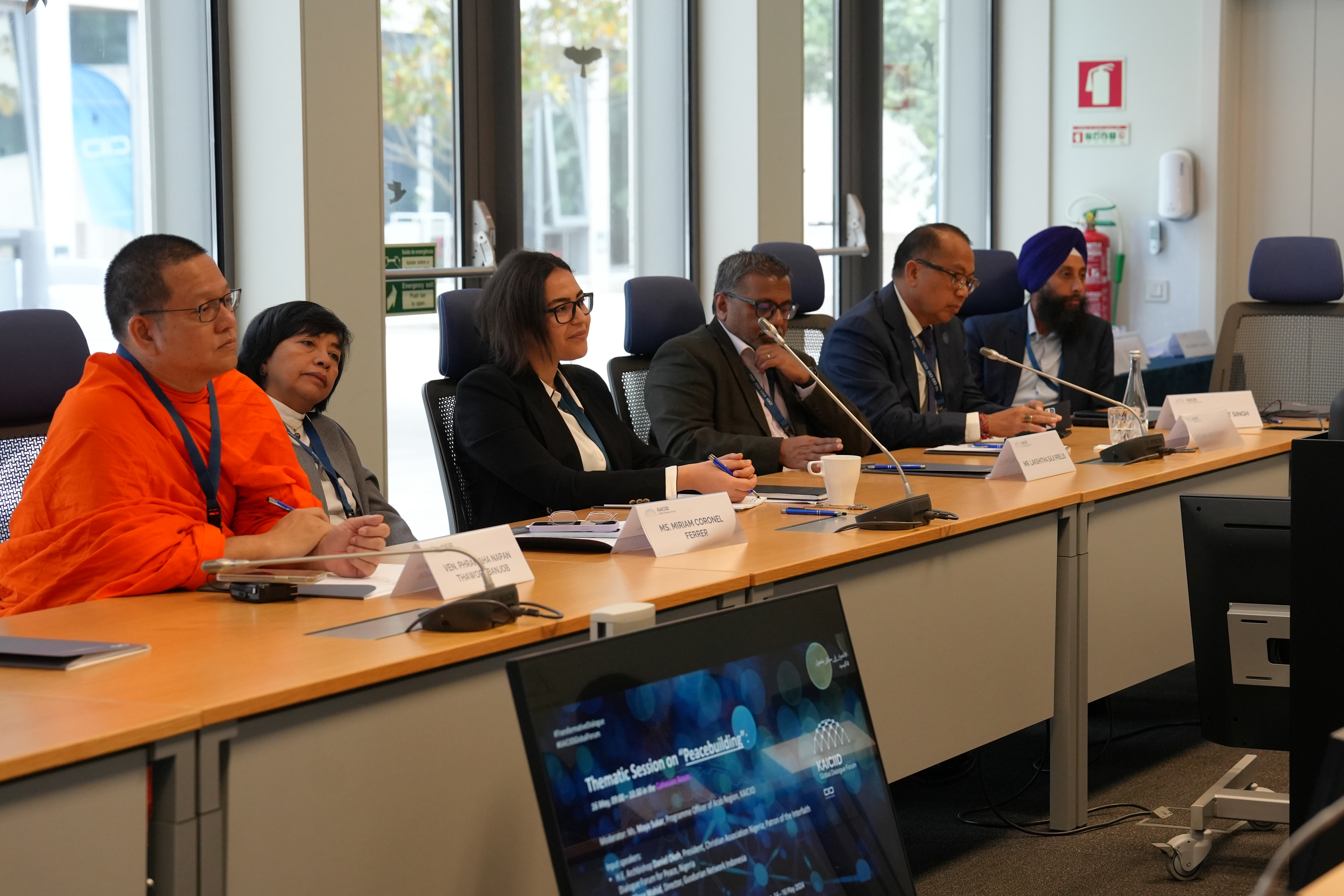
The "Sacred Ecology" session highlighted the critical intersection of environmental stewardship and spiritual values. Dr. Iyad Abu Moghli, Founder and Director of the Faith for Earth Coalition at the United Nations Environment Programme (UNEP) , emphasized the divine responsibility acknowledged by both Western and Eastern religions for environmental protection. He pointed out the substantial influence and resources that religious institutions wield globally.
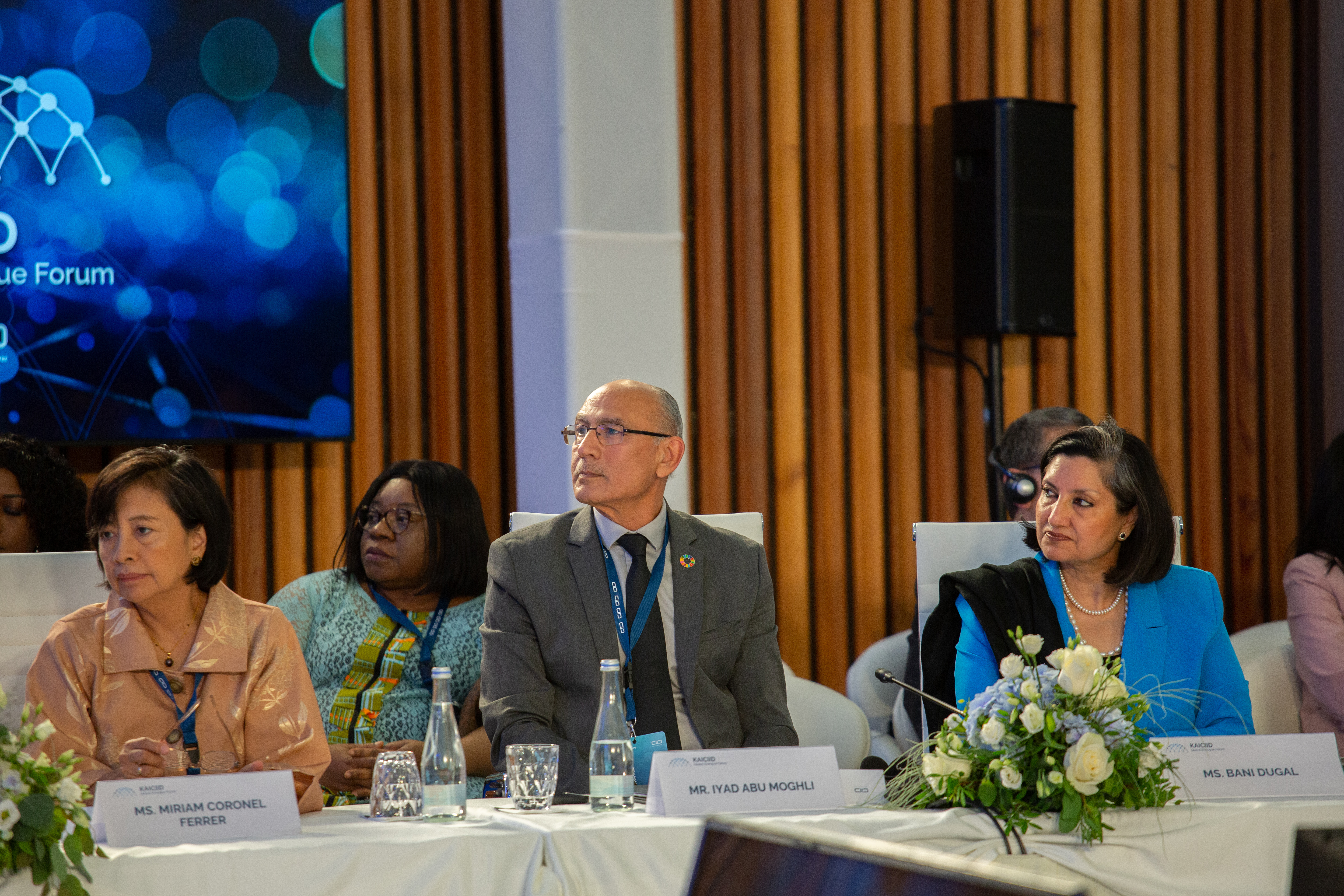
"Religious institutions are the fourth largest economic power on earth," Dr. Abu Moghli stated. "They own more than 8 percent of habitable land on Earth—36 times the size of the United Kingdom. They own hundreds of millions of churches, mosques, synagogues, and temples. These are buildings that consume energy and produce waste; they occupy land. So as religious leaders and institutions, we have to practice what we preach."
As the session moved to breakout discussions, participants highlighted the complexity of environmental protection and the necessity for religious leaders to have access to adequate resources and knowledge to effectively engage in this arena. They emphasized the need for stronger partnerships between religious leaders and governments to ensure that faith-based perspectives are included in policymaking processes, fostering more equitable and sustainable environmental strategies.
Innovative initiatives were shared, such as EcoSikh's reforestation efforts in the Himalayas and their projects to combat challenges like human-wildlife conflict and child marriage through environmentally oriented solutions. These projects exemplify how religious organizations can lead in ecological preservation while also addressing social issues, demonstrating the multifaceted benefits of integrating spiritual values with environmental action.
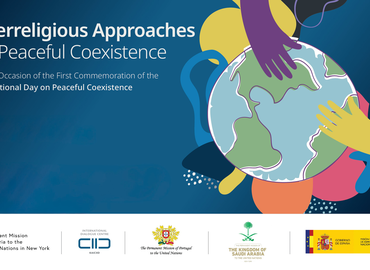
As discrimination, hate speech and identity-based violence…
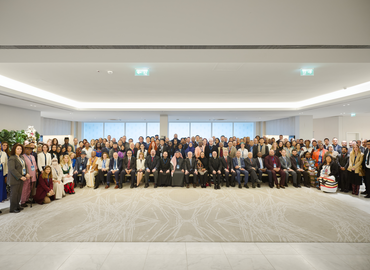
- KAICIID marks 10 years of global peacebuilding, uniting over 130 leaders in…


